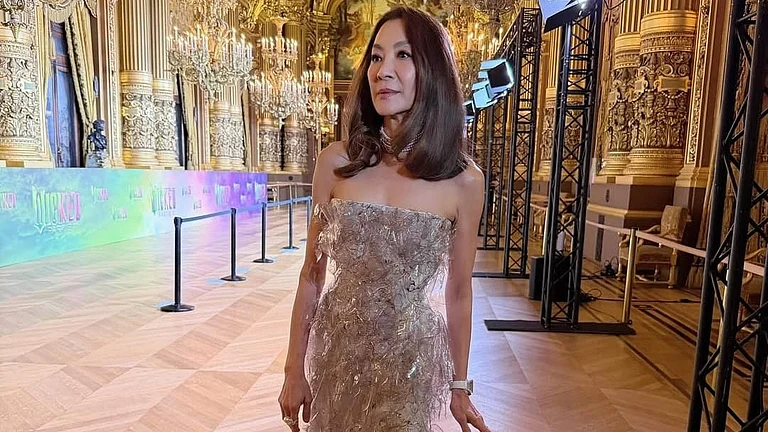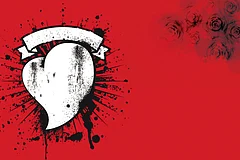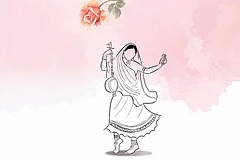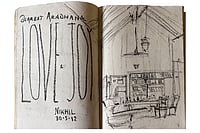“Someone I loved once gave me a box full of darkness.
It took me years to understand that this too, was a gift.”
—Mary Oliver
I am a single woman. I don’t have children. I don’t own a house yet. Or any land. I spend all my money travelling and on collecting books, objects, and furniture. None of my furniture is in pairs. Everything is singular. Like me.
I have begun to draft my will to protect my memories.
Everything must go like in that story called Why Don’t You Dance? by Raymond Carver in the book What We Talk About When We Talk About Love. The book lives in one of the shelves. In that story, an alcoholic man stands in his kitchen looking at his bedroom suite in his front yard. He has put everything on sale after his estrangement from his wife. In that story, the man says, “everything must go.”
In my case, “everything” includes kidneys, eyes, the Milagro Cross that I got from a monastery in Big Sur in California where I spent days looking out at the ocean in silence in the company of 13 Benedictine monks, the dream catcher, etc.

Not that in the general ordinariness of life, these objects I have collected stand out in terms of “wealth”, but for me, they are precious because they contain stories.
Every night, I write the stories of these objects in my house just in case the people who inherit these want to know how these things landed up in my house. I am not sure if anyone would want any of these glass boxes with an old Blackberry phone, a voice recorder, a point-and-shoot camera amongst other things, but a will allows the possibility of storytelling. Writing a book is a daunting task. A will with an Annexure is doable. All this is important information. At least to me. As Mark Z Danielewski writes in House of Leaves—“What can I say, I’m a sucker for abandoned stuff, misplaced stuff, forgotten stuff, any old stuff which despite the light of progress and all that, still vanishes every day like shadows at noon, goings unheralded, passings unmourned, well, you get the drift.”

As a counsellor once told me, a counsellor for Disaffected Youth, I might add: “You like that crap because it reminds you of you.” I am a sucker for stories within stories, for leftover stuff, for all the crap because it reminds me of me.
An editor of mine once told me to write happy stories. That was many years ago. He was quite disturbed by my story about prostitutes in Kamathipura, Mumbai’s red-light district. In that story, the women there talk about love. From that brothel, to which I kept returning to for many years to talk to the eunuchs there, I had brought back a bangle. A gift from them.
I know this is the time for love stories. But my will is about love.
Every year, February 14 is fetishised as the day of love. Red hearts and teddies and chocolates and roses are everywhere. In the real and in the virtual world. Love sells. Two people now find what’s best available based on their exchange value.

There are soft toys once given to me by those who are now gone. A white teddy bear gifted on Valentine’s Day two decades ago is among them. Their stories are archived. The will is an archive of the “I” and an attempt against getting lost. Writers are also archivists. I’d like these to be given to an orphanage.
The other evening, my friend and I were discussing what to do with our things. We are going to die at some point, he said.
“How about writing a will then?”
“At least, we can die in peace knowing our things so lovingly collected will not end up in a dump yard somewhere,” I said.
That’s what happened to my grandfather’s things when he died. His books that I read in my childhood years in that old house in Arrah, Bihar were all full of mold and thrown away. I had managed to get his three diaries, a few books, his coat hanger and the four-poster bed that he always slept in. For more than a decade I have slept in that bed. The diaries have a lot of his fortitude, his melancholy and his observations and of course, everyday events. He had studied English Literature. He quoted Samuel Beckett more than once in there.
I want my nephew to have some of my books, the ones his father got for me, the cracked CDs his father, my brother, once left in my custody and my great grandfather’s bed. It is a queen-sized four-poster bed that my great grandfather had got made when my grandfather was born. It was in the old house in Arrah that belonged to my grandfather. He died in this bed. Alone and perhaps, in peace. The bed was shipped to me by my mother. She said it is a blessing. If my nephew won’t have it, it should go to the brothel in Kamathipura and if the brothel is no longer there, the bed should be for anyone who’d have it. I know someone who had once said they’d imagined waking up in it on a summer afternoon with the curtains keeping the sun and the world out of sight.
I am a hoarder.
Of people and places. Long after I have left those places or people or the people have departed.
I want to donate all my books, mostly fiction and poetry, to my college library. I studied literature at Patna Women’s College. That’s where I first read Christopher Marlowe’s Dr Faustus and came across the despair in T S Eliot’s The Love Song of J. Alfred Prufrock. These books have been curated over the years. My brother carried them for me from various places. I lugged them in my suitcases from various cities. I love my books. They have seen me through the toughest of times, taught me a lot and given me courage. Most of all, they made me imagine.
My rented apartment is a curio house.
There is a 5/7 feet frame on the wall containing my mother’s wedding lehenga. I framed her wedding sari and dupatta too. Those are my inheritances. Things that remind me of her. Things that tell me that my mother was also a young woman with dreams and hopes, that she had her story before I was born.
There is my grandmother’s brass paan box.
There are leaves and stones and seeds from a forest. Broken bits of mountains from Ladakh. Dried flowers from a bouquet of roses. Chocolate wrappers, an old letter, a Virgin Mary statue from Saharanpur, another from a flea market, a small glass bottle containing Holy Water from the Vatican a friend got because I watch horror films, a frame of the Al-Aqsa mosque in Jerusalem gifted to me by a Palestinian journalist who I always think of, and golden shoes that my brother got me with the note saying “these shoes are not for walking” and many such things.
There are my notebooks full of people and their stories. There is an unfinished manuscript of my book.
There is also a red cardboard box that once contained chocolates. A gift from someone I once knew. Inside the box, there are objects that have their own histories, their contexts, their stories. There are three books. One’s about cake recipes by Maira Kalman. I would have baked a cake for the sender some time but I never did. There is a book of Faiz Ahmad Faiz poems that the sender picked up hoping I’d enjoy it more than the How Adam Smith Can Change Your Life by Russ Roberts that he sent me once. There is a neon-green watch but then, time is never linear so I never wore it. There are a few other things.
The box contains a lot of almosts. I’d like it to be returned to the sender. The note should say ‘‘don’t eat cake, eat the rich’’, and there should be a smiley. Always a smiley. To diffuse all tensions. To say that there was love indeed.
There is that blue peacock, a clay owl and a wooden tortoise on the shelf. They are the only things that aren’t singular. Their other halves are in another house with someone else.
A doll, a tortoise, two birds. A parrot and an owl. And a lamp. A few books. Haruki Murakami and Fernando Pessoa and Ocean Vuong. A few more books.
A bunch of lilies. A few paper stars that were lost. From her. To him. With love. After I am gone, my two birds and the tortoise must be put in the red box too and sent. For a reunion.
A will is a love letter. A will is a place of hope. A will is also an archive of longings.
Other than my books and objects, anything else that I own in the name of savings must be used to create a tiny little scholarship fund for anyone who wants to study journalism and can’t afford to do so with the only condition that they must always write about the ones whose voices we seldom hear like the prostitutes of Kamathipura.
And everything should have a little note saying: “Thank you for being there and remember that I remember and love you always.”
MORE FROM THIS ISSUE
My ashes must go to my brother and he should just empty them in the Ganges, the river I grew up next to.
(This appeared in the print as 'Living Will')




























